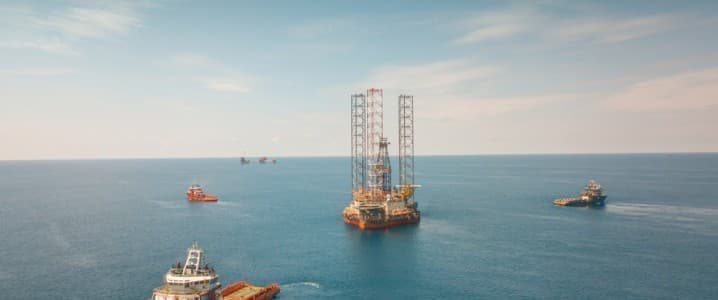After decades of developing its renewable energy capacity, Uruguay is now looking to explore for oil and gas, having made no successful discoveries in the past. New hopes of offshore reserves have encouraged the government to welcome foreign oil majors into its waters to explore for crude, despite the potentially harmful environmental implications of these activities.
Uruguay is located between Brazil, Argentina, and the South Atlantic Ocean. It has a population of around 3.4 million people and, despite being one of Latin America’s richest countries, around one in five children and adolescents continue to live in poverty. Like many countries around the globe, Uruguay is facing a cost-of-living crisis.
In 2022, oil contributed 43.6 percent of Uruguay’s total energy supply, however, it accounted for just 8.9 percent of its total electricity generation. Uruguay imported 97.6 percent of its crude supply and, in 2023, Uruguay imported $1.07 billion of crude petroleum, making it the country’s most imported product. It imports around 50,000 bpd of crude, mainly from Nigeria, the United States, Brazil, and Argentina.
Uruguay’s government is now aiming to make Uruguay more energy-independent in the coming years by looking into its fossil fuel potential. Somewhat late in the game, Uruguay is exploring its Atlantic waters for oil. Uruguay has never found oil on or offshore, but, its former neighbour Namibia – from when the continents were joined as part of Pangaea – recently struck black gold. While Namibia, in the southwest of Africa, is over 7,000 km away, the recent discovery of 11 billion barrels of crude offshore has made Uruguay hopeful that it might have similar luck.
Santiago Ferro Castelli, an energy transition manager at the state-owned energy company Ancap, which is conducting the exploration activities, stated, “We have a very similar geology, very similar spaces.” Ancap estimates there is between a 3 and 23 percent probability that offshore areas will contain oil or gas. Uruguay’s government has awarded seven contracts for exploration projects to companies such as U.S.-based Apache, Argentina’s YPF and the U.K.’s Shell, with drilling expected to commence in 2026.
All 120km2 of Uruguay’s offshore acreage will now be explored for crude. Eytan Uliel, the CEO of Challenger Energy, stated, “In less than 18 months [Uruguay] went from being unheard of [in the oil world] to being 100 percent licensed by some of the biggest companies in the world.”
This move reflects the wave of exploration activities that have taken place across Latin America in recent years. Guyana has become a major area of exploration, with several international oil majors flocking to develop ‘low-carbon’ oil projects. Guyana’s neighbour Suriname has also garnered significant attention, with experts suggesting the region could replace Venezuela as Latin America’s main oil power.
However, many are criticising the move, as Uruguay has made strides in green energy production for several years. In 2022, over 90 percent of the country’s electricity production came from renewable energy sources, which few countries can claim. It is surprising, given Uruguay’s track record with clean energy, that the government would pursue new oil and gas exploration activities.
In the early 2000s, under former President Tabaré Vázquez, Uruguay was facing an energy crisis, relying heavily on neighbouring countries to import expensive oil to power the country. Vázquez enlisted the help of the physicist Ramón Méndez Galain to transform the country’s energy sector by developing its renewable energy capacity. Within a decade, Uruguay developed around 50 wind farms and rolled out hydropower projects across the country. At the time, many viewed green energy projects as too expensive or too intermittent, but the government persisted and eventually transformed the country’s power system.
Galain explained, “No one believed we could do it. We needed new solutions. We needed to do things differently… Today, even members of that cabinet say to me: ‘When you were saying those things on TV in 2008, we were thinking, how are we going to explain this when we fail?’”
In addition to fears of potentially undoing decades of hard work in terms of clean energy, some are concerned about the country’s lack of preparedness, having no history in oil and gas. There are no laws or regulations in place for the development of oil and gas projects, which leaves Uruguay open to be taken advantage of by foreign oil and gas companies unless the government establishes clear legislation before drilling commences.
The government is, nonetheless, hopeful that developing an oil industry will help bolster the country’s economy. In addition, it hopes that energy companies pursuing oil and gas activities will also take an interest in Uruguay’s green energy offerings, as many international oil majors look to expand their portfolios. The may extend to nascent industries such as green hydrogen, as well as conventional renewable energy projects.
By Felicity Bradstock for Oilprice.com
More Top Reads From Oilprice.com
Source link : http://www.bing.com/news/apiclick.aspx?ref=FexRss&aid=&tid=67b663e174c84876bcabca02012c44d3&url=https%3A%2F%2Foilprice.com%2FEnergy%2FCrude-Oil%2FCan-Uruguay-Strike-Black-Gold-Offshore-Drilling-in-Focus.html&c=18204840504053597228&mkt=en-us
Author :
Publish date : 2025-02-19 08:00:00
Copyright for syndicated content belongs to the linked Source.








